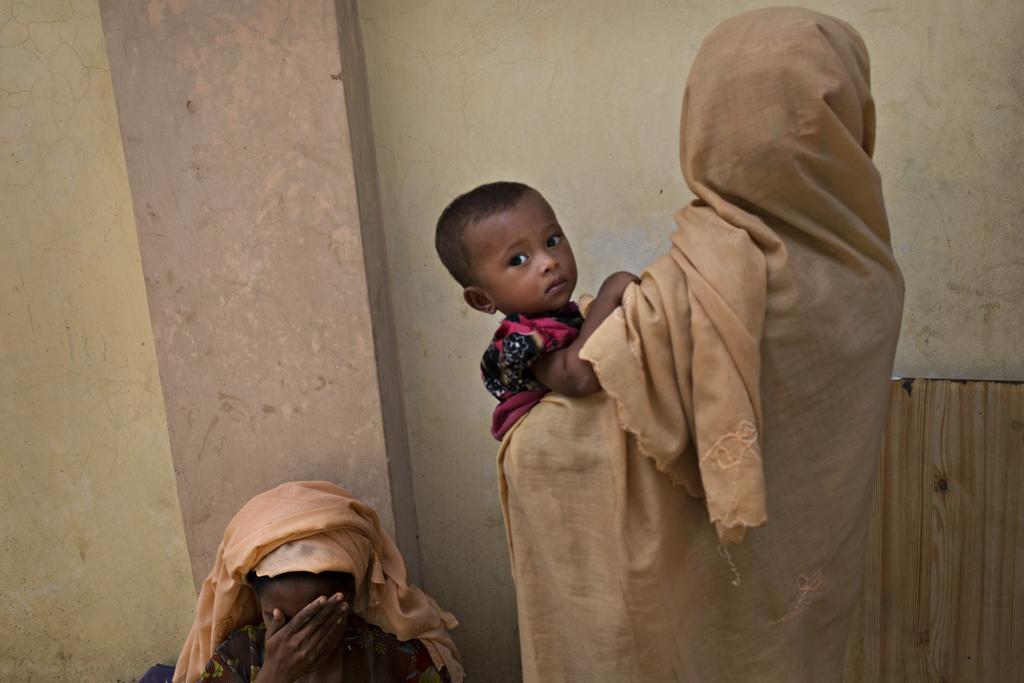US presses Myanmar to draft a plan to give Rohingya Muslims citizenship
Women wait to be treated outside a clinic in the Dar Paing refugee camp on May 6, 2014, in Sittwe, Myanmar.
The United States on Thursday urged Myanmar to draft a new plan to allow the ethnic Rohingya minority to become citizens and to scrap a proposed plan to send them to detention camps if they decline to identify themselves as Bengalis.
Most of Myanmar's 1.1 million Rohingya Muslims are stateless and live in apartheid-like conditions in Rakhine state in the west of the predominantly Buddhist country. Almost 140,000 were displaced in clashes with ethnic Rakhine Buddhists in 2012.
The Rakhine State Action Plan will require Rohingya to identify themselves as Bengali — a term most reject because it implies they are immigrants from Bangladesh despite having lived in Myanmar for generations — in order to possibly get citizenship.
According to a draft of the plan obtained by Reuters, the government has proposed that authorities build camps "for those who refuse to be registered and those without adequate documents."
The plan violates "universal rights" and challenges Myanmar's reforms, said US deputy national security adviser for strategic communications Ben Rhodes.
"We would like to see a new plan that will allow the Rohingya to become citizens through a normal process without having to do that type of self-identification," he told reporters in Myanmar's capital where US President Barack Obama is meeting leaders at a regional summit.
On Wednesday, UN Secretary General Ban Ki-moon said he had expressed his concern to Myanmar about the Rohingya "who face discrimination and violence."
That prompted a backlash from Myanmar officials, many of whom reject the term Rohingya, insisting the population was historically known as Bengali.
Rhodes said the Obama administration understood there were "contested views of history" but they should not interfere with human rights.
More from GlobalPost: Myanmar Emerges
Obama will travel to Myanmar's largest city, Yangon, on Friday to meet opposition leader Aung San Suu Kyi at her home where she spent more than 15 years under house arrest because of her opposition to the former military junta.
Suu Kyi, who won the Nobel Peace Prize in 1991, has been notably quiet on the plight of the Rohingya.
Rhodes urged her to speak out.
"Her voice is obviously critically important," he said.
Myanmar emerged from 49 years of military rule when a semi-civilian government took power and initiated reforms.
Obama told the Irrawaddy magazine in an interview published on Wednesday Myanmar was "backsliding" on reforms, citing issues including a crackdown on journalists and the treatment of Rohingya.
(Editing by Jeremy Laurence, Robert Birsel)
Every day, reporters and producers at The World are hard at work bringing you human-centered news from across the globe. But we can’t do it without you. We need your support to ensure we can continue this work for another year.
Make a gift today, and you’ll help us unlock a matching gift of $67,000!
